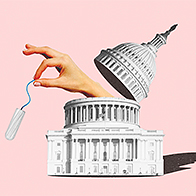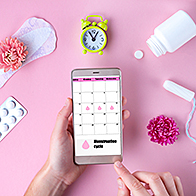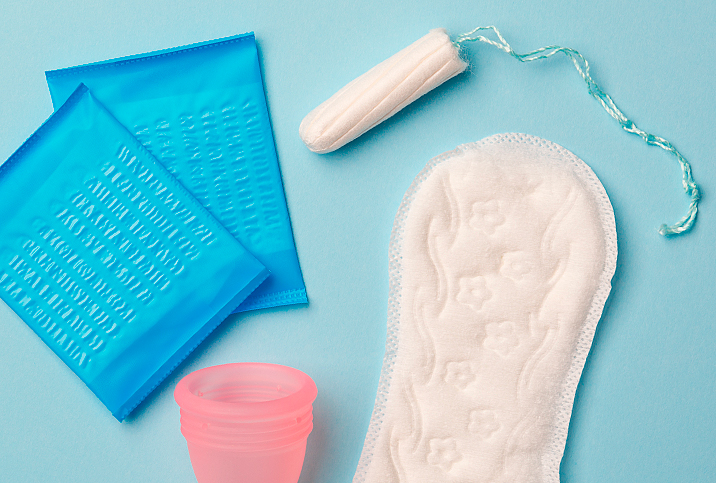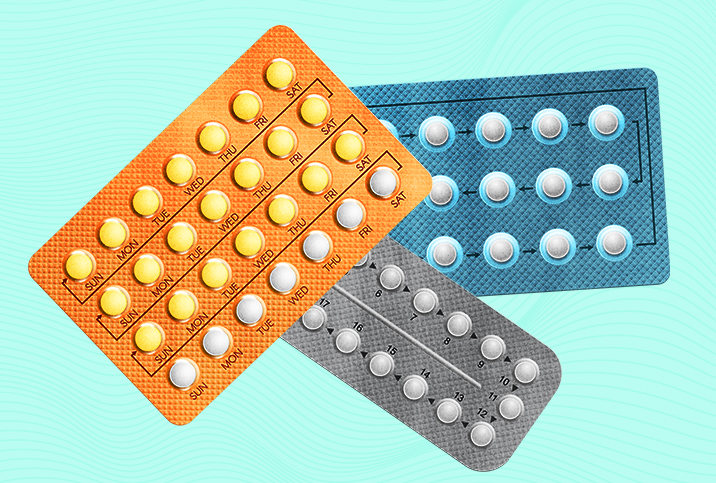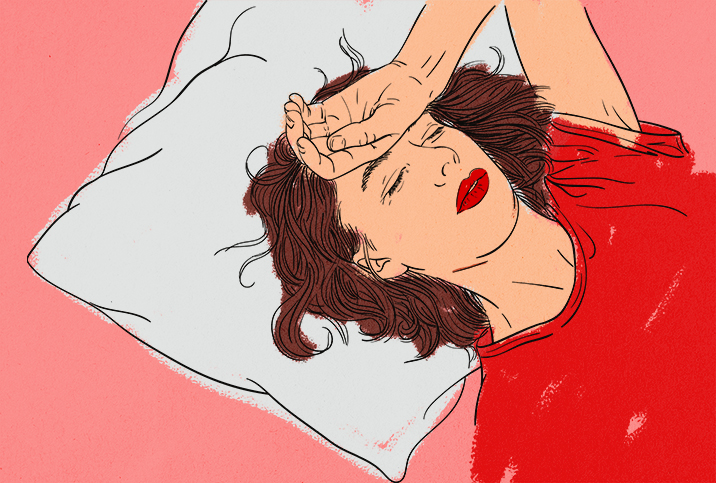New Law Will Provide Free Period Products to Washington, D.C., Students

On January 4, 2022, the District of Columbia (D.C.) Council passed the Expanding Student Access to Period Products Act of 2021, legislation that requires D.C.'s public, private and charter schools to offer students free period products and provide menstrual education to all genders.
A recent study found 1 in 4 teens have missed class because they lacked access to menstrual products. Financial barriers and gender inequality help create period poverty—defined as lack of access to menstrual products, menstrual education, or waste management and facilities. Period poverty affects every facet of well-being. And in the school system, period poverty can thwart attendance.
A survey by Kotex indicated that almost a quarter of Black (23 percent) and Hispanic (24 percent) people who menstruate strongly agree that they've struggled to afford period products in 2021, due to the economic impacts of the COVID-19 pandemic.
So what can be done when young people are struggling to access period products and experiencing educational setbacks because of that? Legislation and education may help.
Period legislation
In America, 30 out of the 50 states tax menstrual products because state legislation deems them nonessential and categorizes them as luxury items. The Los Angeles Times reports that states collectively make more than $150 million each year from taxing period products.
Further, federal aid programs, such as SNAP, WIC and Medicaid, don't cover period products. Many low-income menstruators face the dilemma of how to caretake their period in order to simply attend class.
Councilmember Brooke Pinto is the youngest councilmember to be elected to the D.C. Council and helped pioneer the legislation along with students. "The average person spends between 10 and 15 dollars a month on period products," Pinto said. "We often think of period poverty as something that only occurs in developing countries. But the reality is that women, transgender men and nonbinary people are struggling to afford period products in our own country, and indeed in Washington, D.C."
Menstrual stigma has made it difficult to catalyze conversations to turn free period products into policy. "Providing free period products in bathrooms shouldn't be a revolutionary idea in 2022," Pinto said. "But unfortunately, because of stigma surrounding menstruation, women have been shamed about talking about period equity in public spaces and, as a result, meaningful policy change has not yet been realized."
Pinto noted that the main obstacle experienced when passing the legislation was people were unsure of the bill's necessity. They also were unsure why they should prioritize it during the pandemic, when school closures are rampant.
Students helped to advocate that supplying period products in bathrooms "would help us address truancy and learning loss that everyone has been so concerned about during the pandemic," Pinto said.
Period poverty disproportionately affects BIPOC students
Brian McClure, Ph.D., director at the Council Office of Racial Equity, said that passing the law would improve outcomes for Black and brown students of the district.
"Given how the lack of access cuts across myriad inequities, including gender, race, access to health care, housing outcomes, and so on, providing free access to period products is a crucial first step in ending period poverty and in striving toward more equitable outcomes," McClure said.
Pinto explained that the disproportionate effects of period poverty impact educational success. "When students don't have access to the period products they need, they miss school, fall behind their peers, and are more likely to experience depression and anxiety," Pinto said. "This is particularly concerning right now as the number of mental health crises experienced by teenage girls has skyrocketed during the pandemic."
The councilmember also said that period poverty exacerbates physical health disparities for Black and brown women.
"Women who do not have access to period products are more likely to use the products they have for longer than is recommended and use towels or other materials that are not properly sanitized," Pinto said. "This increases the likelihood of infection and other health risks, the impacts of which are more severe for women of color due to systemic racial discrimination in health care."
The Kotex study affirmed Pinto's worries about health impacts—finding that 36 percent of Black women, 30 percent of Hispanic women and 32 percent of white women said they wore period products longer than recommended due to financial concerns.
In defense of menstrual education for all genders
The new legislation expands menstrual education to all students in D.C. schools, regardless of gender. Lack of menstrual education is part of period poverty—providing it may help solve it.
Councilmember Pinto said at the hearing for the Expanding Student Access to Period Products Act of 2021, high school boys spoke about how they learned about menstruation from female peers because menstrual education wasn't offered as part of their sex ed.
Without menstrual education, boys may get their information solely from word of mouth, which may likely be lacking. Misinformation spawns stigma, a driving force of period poverty.
"When they came to understand that period poverty was preventing their friends from attending class, they leapt into action and testified before the Council about the need for providing free period products in school bathrooms and comprehensive menstrual education for all students," Pinto said.
'Given how the lack of access cuts across myriad inequities...providing free access to period products is a crucial first step in ending period poverty.'
"Periods are also a monthly reality for over half of our population, and ensuring that the next generation learns about this basic health reality is important for our society," the councilmember added.
"You can't solve a problem you don't understand," said Rachel Wilson, associate director of Domestic Programs at The Pad Project, an organization dedicated to ensuring menstruators can attend school. "Providing menstrual education to all students ensures that everyone understands the biology of menstruation, the necessity of menstrual products and the problems caused by lack of access to menstrual products."
NPR reports that although 37 states have introduced period equity laws, only five states require schools to provide period products. When students can't access the period products they need, those effects are far-reaching and impact education, work, and mental and physical health.
"The burden of understanding and solving period poverty should not be solely on those who menstruate," Wilson concluded. "If everyone understands this problem, we can work together to solve it."







